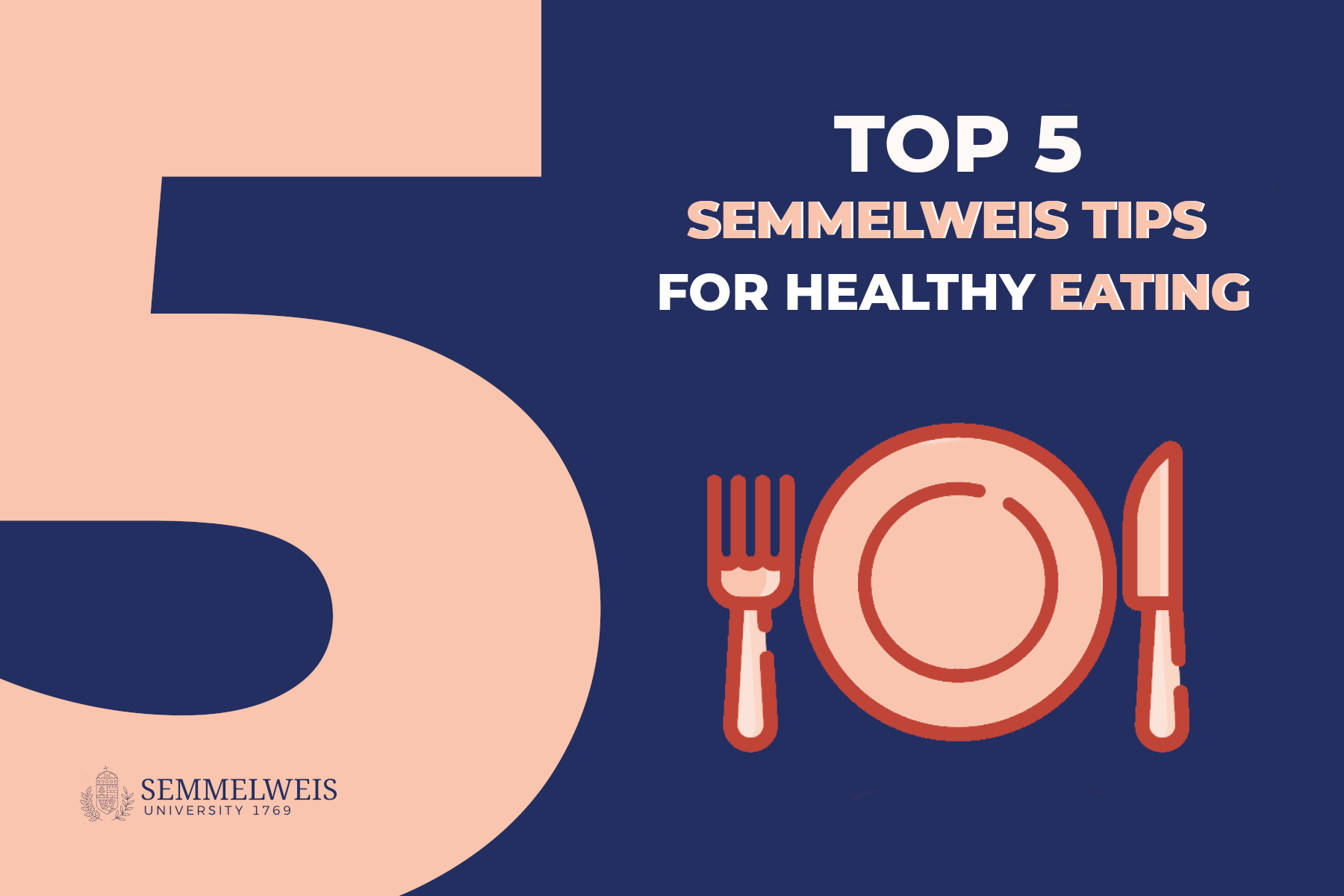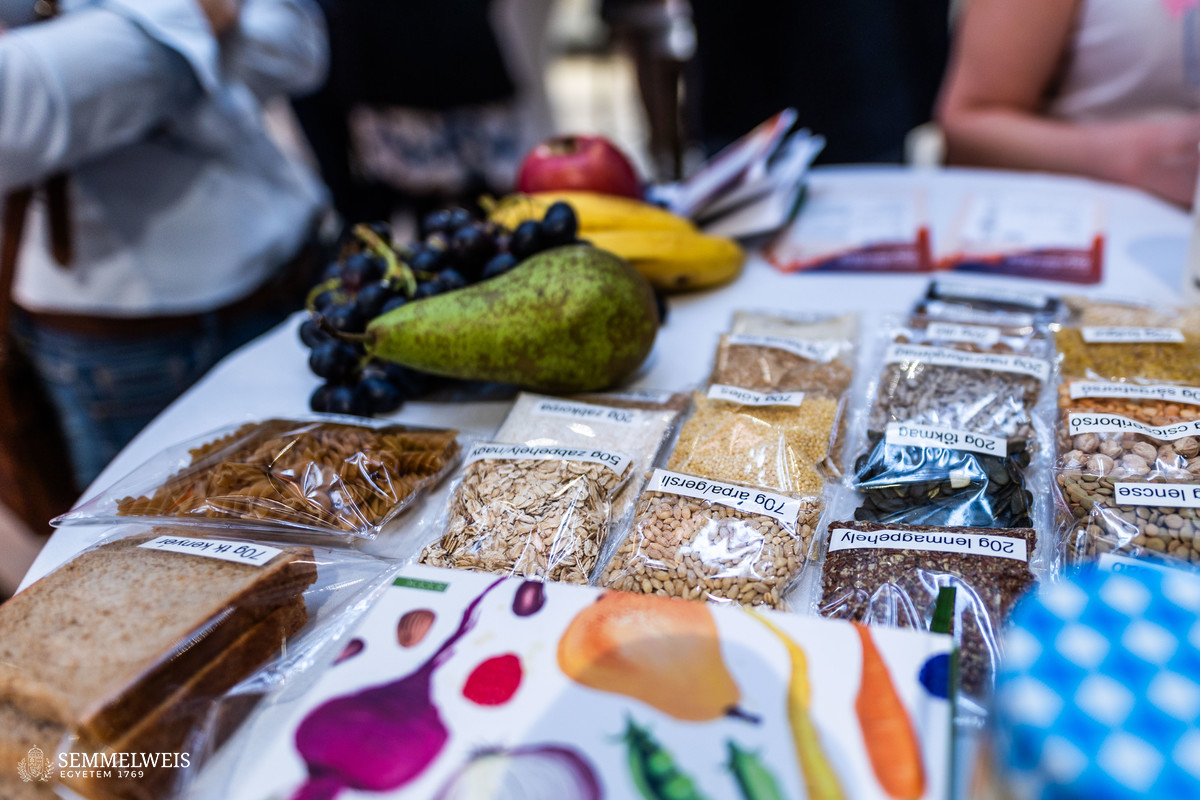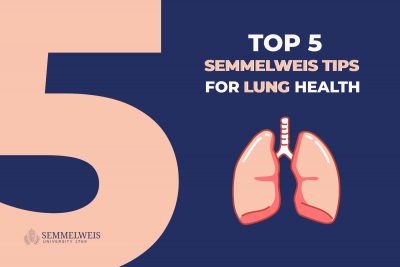1. Instead of trendy diets, get to know the Smart Plate!
You can do a lot for your health by adopting a good diet that is sustainable over the long term. According to scientific recommendations, it is advisable to include not only the nutrients that are important for the human body, but also essential trace elements and vitamins. The dietary recommendations developed by the Association of Hungarian Dietitians, which are tailored to the specific needs of Hungarians, provide a starting point and up-to-date help with recipes and menu suggestions,” says dietitian Blanka Vékony. Last updated in 2021, the guideline called Smart Plate makes recommendations on the daily intake of vegetables, fruit, cereals, animal protein sources and fluids needed for a balanced diet, based on the specific needs of healthy adults and children aged 6-17. It has been developed considering food choices, dietary habits and traditions typical of the region.
2. Fruit and vegetables cannot be spared!
There is no longer much debate that we should eat at least half a kilogram of fruit and vegetables a day, and it would be ideal if at least some of it were eaten raw, as this quantity already contributes significantly to good health,” said Blanka Vékony. It is even better if two thirds of what you eat are vegetables and one third is fruit. People only tend to eat half of this, although it can be consumed with soups and stews as well. Plant-based ingredients and foods help to maintain our fluid balance; their vitamin, mineral, fibre and antioxidant content, which is mostly water-soluble, also supports healthy body function. A daily intake of at least 25-30 grams of fibre is also recommended, which can be achieved by eating whole grains and increasing fruit and vegetable intake,” the dietitian noted.
3. Menu planning is the key to success!
It is better for your wallet and also for your health to plan your menu several days in advance and cook your own meals,” says Blanka Vékony. This way you become aware of the added sugar or allergen content of the food, and can tailor it to your own needs. What is more, it can cost less per portion for a family than ready meals or fast food, which often contain countless ingredients. A healthy, balanced meal is easier to achieve if you prepare next day’s breakfast, lunch and even snacks the night before,” the dietician said. It is also okay if you don’t always manage to stick to your plans, because healthy eating doesn’t depend on a single meal; its implementation and evaluation should be approached in a complex way,” said Blanka Vékony, adding that it is never too late to start again.
4. Fluid is more important than we think!
The recommendation is to drink 2-2.5 litres of fluid a day, which can be increased to at least 3 litres in the summer. Even a slight reduction in fluid intake can lead to a loss of attention, physical or mental performance. “However, it is important not to replace fluid loss with sugary drinks, i.e. drinks with added sugar. Tap water can be enhanced as well by soaking herbs (like mint or sage) or fruit and vegetables in it, adding lemon, diluting 100 percent fruit juices instead of syrup, not to mention chilled fruit teas,” said Blanka Vékony. Although sweetener-flavoured soft drinks do not add calories, their consumption is only acceptable on occasion. And drinking large amounts of energy drinks is definitely not advisable due to the side effects of high caffeine content, such as headaches or aggressive increases in blood pressure,” added Blanka Vékony. Also, when it comes to mineral waters, it is worth adjusting the product’s mineral content to individual needs.
5. Don’t skip breakfast!
“The ideal is 3-5 meals a day, but the key is not to limit yourself to one meal a day”, says Blanka Vékony. It is also important to pay attention to the distribution of energy intake: lunch should be the most nutritious, followed by dinner and then breakfast. It is not a good idea to skip breakfast as the first meal of the day, as reduced energy intake means that many people will inevitably eat more than they need to make up for it at the next meal. Certain popular diets allow and forbid eating in specific time windows, but this can lead to eating disorders in case self-control is not strong enough. Postponing the first meal of the day until the late afternoon can not only increase the risk of obesity, but can also cause serious health problems, such as gallstones.
The first part of our series on lung health can be found here, and advice on keeping your joints healthy can be found here.
Melinda Katalin Kiss
Translation: Viktória Kiss
Photo: Bálint Barta – Semmelweis University






